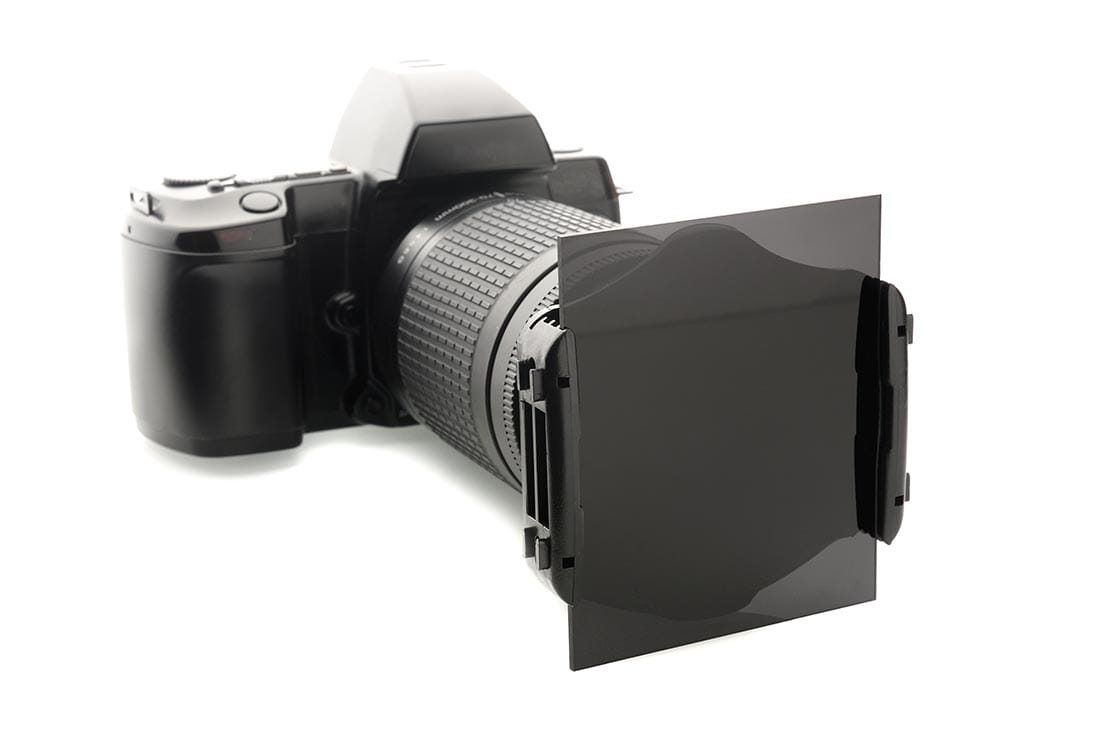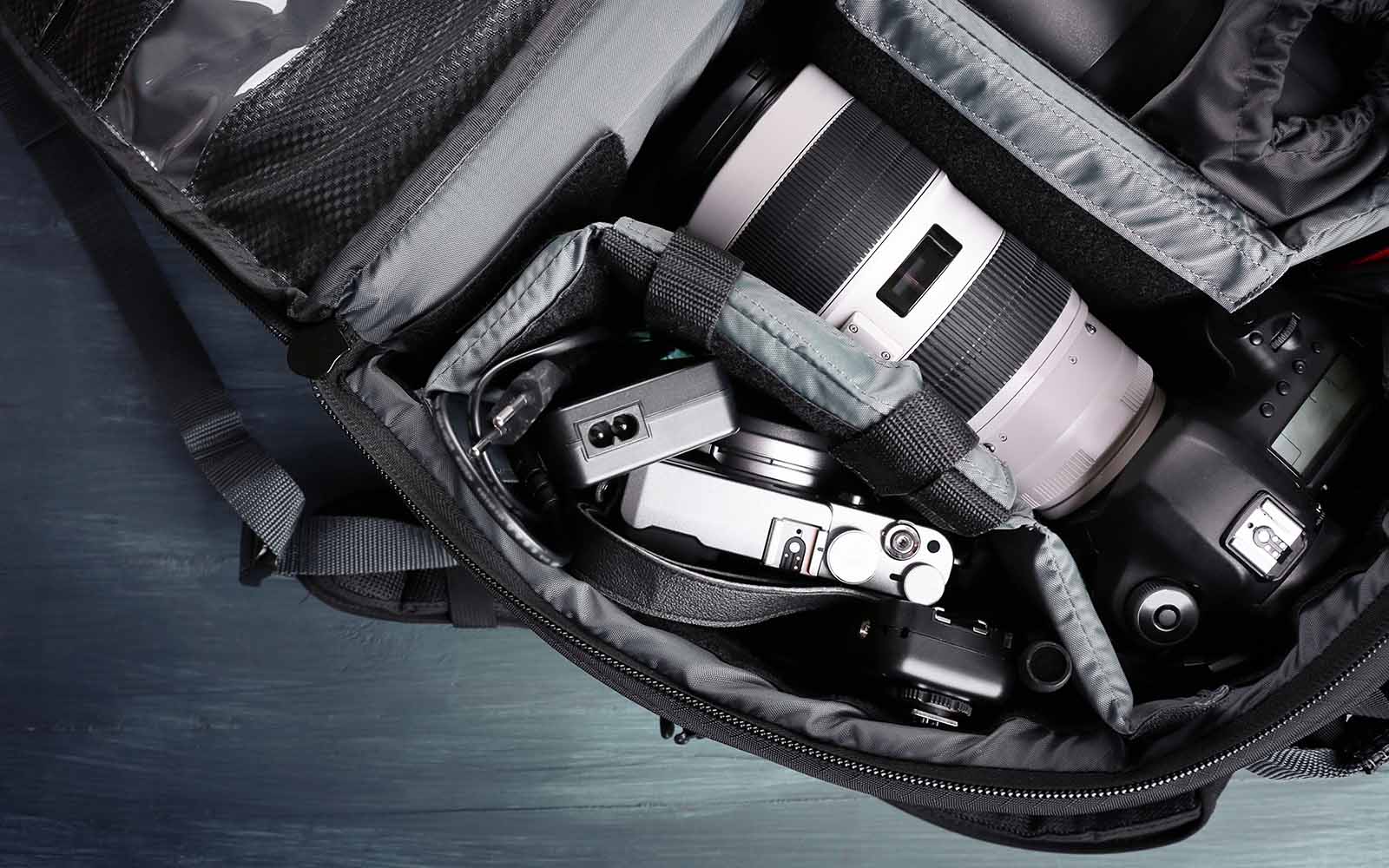For landscape photographers a neutral density (ND) lens filters are indispensable tools that allow photographers to control light, overcome exposure challenges, and create breathtaking images. The market is flooded with a plethora of options, each promising exceptional performance.
In this photography guide, I’ll walk you through the best ND lens filters available, helping you make an easy choice when selecting the perfect ND filter for your photographic endeavours.

Neutral density lens filters work by reducing the amount of light entering the camera lens without affecting colour balance. This reduction enables photographers to achieve stunning creative effects and manage challenging lighting conditions. Think of them like sunglasses for your camera!
ND lens filters are essential for shooting long exposure photography too. If you want to capture photos of silky-smooth water, you can use an ND filter to lengthen the exposure time and therefore blurring the motion of any movement in the shot.
The best ND lens filters will deliver consistent results, ensuring sharpness, minimal colour cast, and exceptional image quality.

Graduated ND (GND) filters are designed to address high contrast scenes, such as landscapes with bright skies and darker foregrounds. These filters feature a graduated density, gradually transitioning from dark to clear, allowing photographers to achieve balanced exposures.
GNDs are in effect half sunglasses for your lens. You can buy hard edged or soft edged GND filters. These determine how quick the filter changes from clear to filter – either suddenly, or gradually.

The density of an ND filter is measured in F-stops and decides the amount of light reduction.
The best ND lens filters offer a range of densities, from subtle reductions to extreme long-exposure capabilities. You’ll find ND filters sold as ‘2 stops /ND2’ or ’10 stops /ND10’. These ‘stops’ are how many stops of light it will reduce the exposure by.
For example, if you set up a well exposed shot at F/8 and then applied an ND filter, you’ll have to brighten the exposure by 2 f-stops, to F/4, to get the same level of exposure as without the filter.
You don’t have to alter the F-stop though. Instead, you can change the shutter speed, which most photographers do, to rebalance the exposure. But if you’d rather not spend all your time changing or adding lens filter when you’re outdoors then consider getting a variable ND lens filter.
These are single filters which, when rotated, offer various levels of light reduction. This means you only need one filter which can cover anywhere from 2 stops up to 400.
When you’re buying your ND filter make sure it’s the right size to fit the lens you want to use it on. The correct filter size is essential to ensure seamless integration with your lens. The best ND lens filters come in various sizes to accommodate different lens diameters.
Check the rim of your camera lens for the thread size. They can range from 42mm up to 72mm and larger.

To ensure exceptional optical performance and durability, the best ND lens filters are crafted using high-quality materials. Premium glass or resin filters with multi-coating reduce unwanted reflections. They can also help minimise lens flares, and keep the colours accurate.
Budget is a factor with most photography purchases but don’t skimp if you don’t have to. A filter is another extension of your lens’s optics. If you put a low-quality filter in front of a good lens, you’re only going to be reducing the image quality at the first hurdle.
If it means waiting a while and saving up for a better-quality ND lens filter, then it’s worth it in the long run to your photography.
The best ND lens filters are designed to keep true colours. Low quality ND lens filters might introduce colour shifts or cast, compromising the integrity of your images.
If your budget allows, opt for filters from reputable manufacturers to ensure correct colour reproduction. Companies such as Hoya, Lee and Case filters are some of the best brands to look out for.


Image: Low quality ND filters can alter the colours in a photo.
You might find that some low-quality ND lens filters cause vignetting. This is a darkening of the corners of the image. It can reduce the overall image quality. The best ND lens filters are meticulously engineered to minimise vignetting and keep consistent image clarity across the frame. But watch out for vignetting occurring on cheaper filters.


Image: Cheap filters can sometimes cause black edges called vignetting
The Lee Filters Big Stopper is renowned for its exceptional light reduction capabilities, offering a 10-stop density for long-exposure photography. This ND lens filter is highly regarded for its optical performance, minimal colour cast, and ability to capture stunning motion blur effects. Because of its premium quality, it’s quite a fan-favourite amongst landscape photographers.
The B+W ND110 is also popular with photographers who value both high-quality optics and durability. This 10-stop ND filter is crafted with precision and features multi-coating to reduce reflections and keep excellent colour accuracy. It is widely used for long-exposure photography and is known for its minimal colour cast and exceptional image quality.
Hoya Pro ND filters are highly regarded for their excellent optical performance and versatility. These filters come in various densities, including 1-stop, 2-stop, and 3-stop options, allowing photographers to choose the desired light reduction. With their multi-coating and low colour shift, Hoya Pro ND filters come with a good reputation for quality and durability.
Formatt Hitech Firecrest filters have gained a strong following for their superior optical quality and colour accuracy. These filters feature a multi-coating that reduces lens flare and reflections. Available in various densities, including 3-stop, 6-stop, and 10-stop options, Firecrest filters are favoured by photographers for their exceptional performance in challenging lighting conditions.
The Singh-Ray Vari-ND is a unique variable ND filter that allows photographers to adjust the density within a specific range, supplying flexibility in controlling light. This filter is popular among photographers who require quick adjustments to exposure settings without changing filters. It offers versatility and convenience, making it a popular choice for various shooting scenarios.


Image: The effect of a GND (gradual neutral density) filter on the sky
Finding the best ND lens filters is a crucial step getting the best exposure in bright conditions, as well as exploring creative ideas in low light. By understanding the key factors and trade-offs involved, you can make an informed decision that aligns with your creative vision and shooting requirements.
Whether you want to take long exposure photos of water or the shoot sunsets under the balance of graduated filters, choosing top-quality ND lens filters will elevate your photography to new heights.
Discover TOP features in the Lightroom CC mobile app with this guide for enhancing your photo editing skills. For desktop and tablet too.
Shooting sunsets using amazing 5-in-1 magnetic lens filters from Kentfaith, the 1st choice for photo & video products.
Popular memory cards for photography – what’s the best SD card for your digital camera? Choose the right capacity and class speed in our guide
Learn the basics of photography – fast – with our FREE 60-Second Photographer online course. Each class is short and sharp with simple, actionable steps that give you immediate results.
x 30 lessons

© iPhotography™
Become a confident and competent photographer in less than 30 minutes!
Before you leave, make sure you’ve secured your FREE online photography course (worth £29.99)
Each class is just 60-seconds or less making it the fastest and easiest way to learn photography!